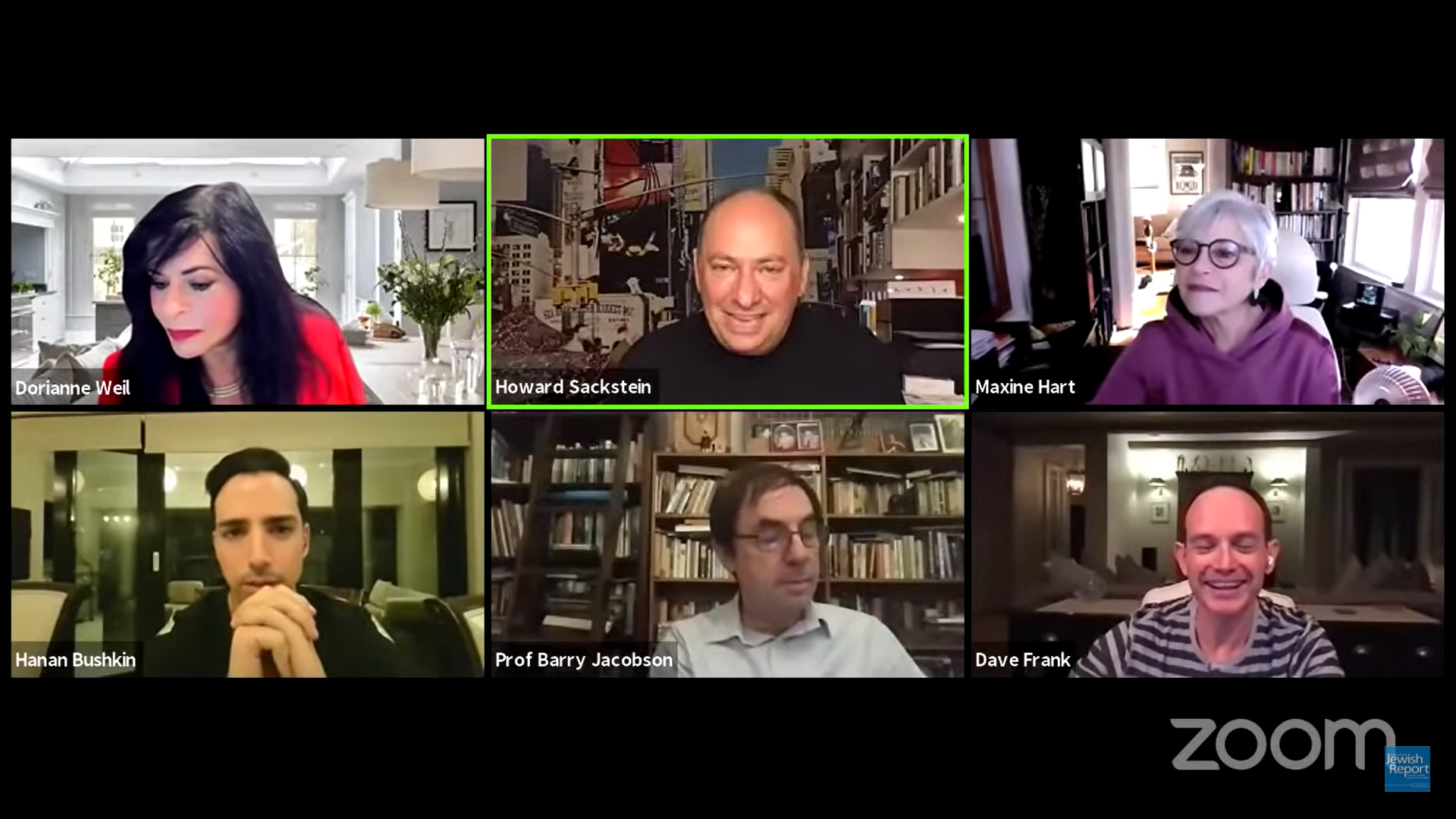
Featured Item

How to stay sane in a pandemic
When anti-apartheid activist Maxine Hart was arrested by the feared security police in 1984, she was forced into solitary confinement for 156 days. Detained again the following year, she is no stranger to the oppression of isolation which has for many become a grim reality of COVID-19.
“We are all living with limited personal freedoms and in various states of solitary confinement,” Hart said. “When we went into lockdown, I experienced PTSD [post-traumatic stress disorder]. I felt the terror of being in solitary again, and I recognised what this would do to people.”
For many of us, the dimensions of loneliness to which the pandemic has given rise are huge and frightening. How does one combat the emotional, mental, and psychological effects of being separated from those we love? Can we overcome the darkness caused by the lack of certainty in lives under a pandemic?
“We all have personal meaning that enables us to keep going,” said Hart, who was sharing her experience on a webinar hosted this week by the SA Jewish Report. “Maybe the meaning for us right now is that in our time of adversity, we need to get through the suffering.”
Daily structure, exercise, and a belief in her ability to determine her own response all proved essential in dealing with her isolation, said Hart.
“We have a choice,” she said. “We can look out the window and see the sky or look down to see the mud. We all have an ability to choose our attitude, and we don’t have to set a general rule that we’ll always be happy.”
This approach is a vital tool under the circumstances. At a time when uncertainty abounds, it’s little wonder that people across the world are effectively in a mindset of mourning, said clinical psychologist Dr Dorianne Weil.
“The situation has actually been worse under the second wave,” she said. “We’re seeing all of the stages of grief that come with loss – loss of money and jobs, loss of certainty, and predictability, even loss of self. No one knows what the future holds.
“I spoke to a doctor on the frontlines who also worked on the ground at 9/11. He said that as devastating as that day was, it had nothing on what this [present situation] is. At 9/11, I could treat people and not get sick. I could treat people without worrying about my family. As devastating as it was, it had none of the huge degree of uncertainty that’s so prevalent today.”
Fellow clinical psychologist Dr Hanan Bushkin agreed that uncertainty has wrought huge problems.
“The brain likes to predict what’s coming next, and we all created a pseudo date when it would be over,” he told the webinar. “People held their breath as December came, and then couldn’t see the end in spite of all the suffering.
“People can really adapt to suffering when they know there is an end point. You can push yourself, but when it’s endless, the brain goes into a state of hopelessness.”
While the broader situation is beyond our control, Bushkin stressed that we need to find parts of our lives that we can control if we’re to give this time meaning.
“Not every moment is happy, but we have to dance to the music and make the most of it,” he said. “The human mind has an incredible ability to develop an attitude to any situation.
“Holocaust survivor Viktor Frankl watched families being led into gas chambers and some of them went dancing. He wrote that this proved that all can be taken from a person except for the freedom to choose their own attitude. You control the meaning you give to any situation.”
This can even mean actively choosing to be upset and sad, said Weil.
“There’s a danger about saying, ‘be positive’,” she said. “If you do it all the time, it makes you deny what you’re going through. It’s important to own what you feel. If you don’t, it will own you.
“If you recognise what you are going through and find ways to address it like self-compassion, routine, or exercise, you can feel a sense of control inside while you cannot control the outside.
“There’s a danger in people thinking, ‘I must just get on with it’. You get on with it by facing it,” she said.
Don’t make a condition for when you will be better, stressed Bushkin.
“Twelve months have shown us that what’s happening isn’t under our control. Don’t rely on a conditional attitude – that you’ll be better when things turn around. You’ll be disappointed. Look down, and focus on what you can change right now. It will be ok, but it happens one step at a time.”
Now is the time to develop coping mechanisms, experts say. Clinical psychologist Dr David Abrahamson said that mental health is going to be one of the biggest pandemic challenges we’ll face in 2021.
“While a vaccine may offer some light at the end of the tunnel, we don’t have a vaccine for our mental health like we do for our physical health,” he told the SA Jewish Report.
“Uncertain times mean navigating changes in your life that you can’t control. They may mean doing things differently, even reaching out for help. That’s part of being resilient, and it’s nothing to be ashamed of.”
There’s no right way to get through a difficult time, stressed Abrahamson.
“Some people get super productive. Others, not so much. Let go of the pressure of other people’s expectations. Find some things you want to do, things that take your mind off your worries in uncertain times. That might mean enjoying a movie at home, ordering takeout, letting the kids eat cereal for dinner – whatever you need to do,” said Abrahamson.
“Accept that some days you have only so much to give others. People differ in their ability to tolerate uncertainty, and it’s so important for each of us to be aware of our own individual threshold.”
Whatever your approach, don’t neglect the basics which are hugely important in keeping us anchored, he said. These include getting enough sleep, eating healthily, and exercising regularly.
“Remind yourself that this period of uncertainty will end,” Abrahamson said. “One way or another, at some point, this period will be over. We don’t know when that will be, but we do know it will happen.”











Deanna isaacs
February 4, 2021 at 1:18 pm
What an excellent article thank you